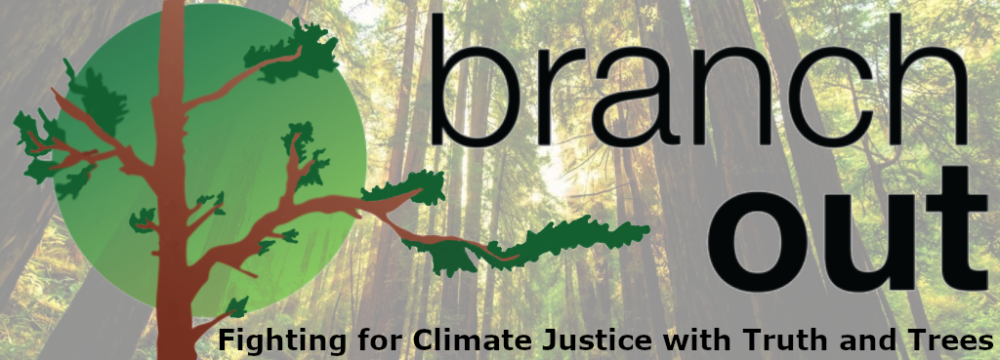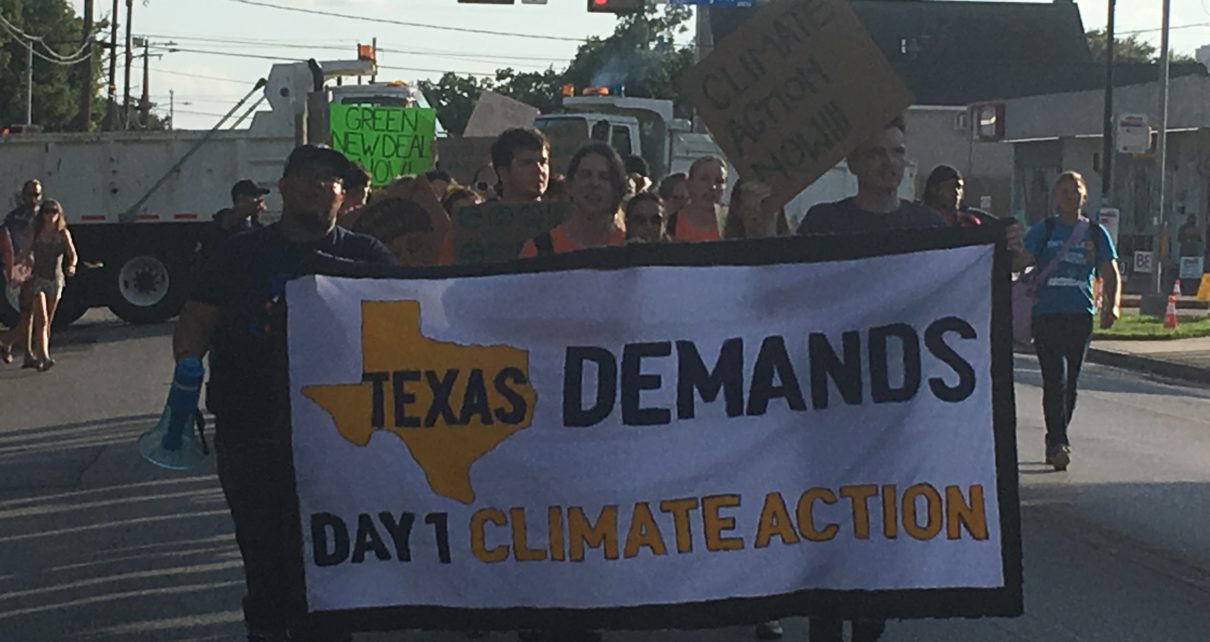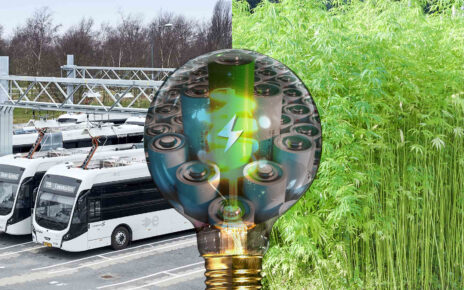During the CNN and New York Times Democratic Debate at Otterbein University in Westerville, Ohio, moderators did not ask a single question about the climate crisis. Twelve candidates sparred for three hours over topics including impeachment, Syria, healthcare, the economy, gun violence and women’s reproductive health, but they never directly addressed the hottest topic of all: the economic, ecological and existential threats posed by human-caused global warming.
Let’s face it, most people don’t like to talk about the climate crisis. It can be exhausting to come face to face with ecological collapse, the power of the fossil fuel industry, and climate change denial in the White House. It may not even be surprising that CNN completely brushed over the issue. A recent article published by Branch Out highlights how the mainstream media has diminished the climate crisis, and when they do cover it, they usually emphasize the importance of personal choices rather than systemic change.
Global Action
CNN’s choice not to ask Presidential candidates about the climate crisis, however, comes amid a sharp uptick in protests to demand climate action. In September, about four million people around the globe joined the Global Climate Strike, making it the largest climate protest ever, according to Democracy Now!. The group Extinction Rebellion began what they are calling an “International Rebellion” on October 7th, and so far thousands of activists have been arrested worldwide.
Groups such as the Sunrise Movement have repeatedly staged demonstrations calling for a democratic debate focused solely on the climate crisis, but so far the DNC has refused to allow one. Unfortunately, when the media fails to cover the climate crisis, American citizens who are not already well-informed about climate change can get the false impression that it is not a very important issue.
‘Texas demands day one climate action’
At the September 12th Democratic Debate at Texas Southern University, a historically black college in Houston, Texas, about 50 activists held a “Rally for the Climate” outside the debate venue. Meanwhile, 11 Greenpeace activists were dangling from the Fred Hartman Bridge to block the Houston shipping channel, the largest oil export terminal in the United States.
The Greenpeace activists were eventually arrested. At the debate, only 7% of the moderator’s questions related to the climate crisis, according to Media Matters. About a week later, Tropical Depression Imelda dumped over 40 inches of rain in some areas around Houston leaving more than a thousand people in need of rescue and prompting a local sheriff to reflect, “This is worse than Harvey,” according to a report in CBS News.
On the ground outside the September debate where activists with 350 Houston, Moms Clean Air Force and the Sunrise Movement, among other groups, helped lead the Rally for the Climate, Hurricane Harvey was just one of many examples showing how climate change has affected Houston.
Local perspectives
Nissi Hamilton, a candidate for Houston City Council and member of Moms Clean Air Force, said “The number one climate disease right here is asthma.” Houston is littered with large oil refineries and petrochemical plants that emit toxic chemicals on a regular basis. Hamilton decried the lack of notification given to local residents when a plant in Deer Park, Texas caught fire earlier this year. Branch Out published a report on the Deer Park fire and other petrochemical plant fires, in April.
Shelly Baker, a fellow at 350 Houston and one of the organizers of the Rally for Climate Action, told Branch Out how important it is that activists, the media and politicians alike connect the climate crisis to “everyone’s everyday lives.” Baker said, “There’s a lot of things that are very connected to climate.” She also reflected on how the CNN Climate Crisis Town Hall in early September “was an opportunity for candidates to address how the climate crisis is interacting with all these other issues.”
Baker, however, seemed skeptical about all the candidates’ commitments to taking day-one action to address the crisis, which was the main demand of the protest. “I think what the candidates are doing outside of the debates is more telling of their commitments,” said Baker, adding that many candidates, including former Vice President Joe Biden and former Texas Congressman Beto O’Rourke, have taken money from the fossil fuel industry.
Connecting the dots
The message on the ground has been clear: climate change and the fossil fuel industry negatively impact communities right now, and something needs to be done about it. While CNN and The New York Times clearly did not hear that message, some of the candidates at the October democratic debate found ways to connect the climate crisis to other issues because it was the only way they could even mention it.
Vermont Senator Bernie Sanders, for example, was the first to mention climate when he responded to a question about job creation by calling for a Green New Deal. Former mayor of San Antonio and Housing and Urban Development Secretary Julián Castro also mentioned the Green New Deal. Sanders later compared executives responsible for the opioid epidemic to fossil fuel company executives who are responsible for continuing to knowingly make the crisis worse.
Billionaire Tom Steyer, founder of Need To Impeach who made his debut at Tuesday’s debate, also mentioned climate change in a discussion about foreign policy where he emphasized the need for the United States to work with our allies. Tech Entrepreneur Andrew Yang also namedropped Climate Change as one of the threats facing the country but did not offer anything more than a mere acknowledgment.
By not asking any direct questions about the climate crisis, candidates were forced to connect it to other issues. While it is critical that our politicians make these connections, it is equally critical that mainstream media makes these connections too, and asks the candidates what they will do to stabilize our climate and help the frontline communities who are already suffering from the climate crisis.
As Nissi Hamilton’s speech showed, the climate crisis affects healthcare. In Syria, the civil war was caused in part by climate change, according to a report in Scientific American. And advocates for the Green New Deal argue that transitioning to renewable energy will also provide much-needed job opportunities and boost the economy. Most of the issues mentioned in the democratic debates relate to climate change and its time for the mainstream media to recognize this fact and stop obstructing progress by omitting coverage.




